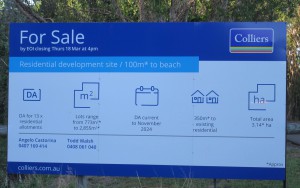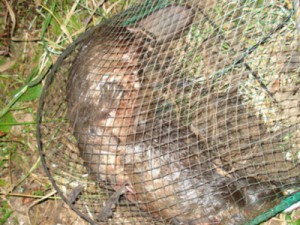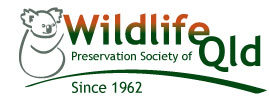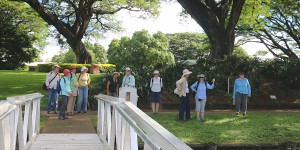A salute to our members, new and old: We would like to welcome 3 brand new members Emma, Carol and Pam, as well as “recycled” members Chris and Alastair who have both come back to us after a break of a few (or more!) years. It’s great to have you with us! It is also timely to give a shout-out to our interstate members who have stuck with us despite having moved away from Townsville, in some cases decades ago – they are Graham (NSW), Steve (Vic), Jan and Mark (ACT) and Jo (NSW). You are all legends! As for our two life members – former president George (in Canberra) and former treasurer Jane (Brisbane) – both have been in touch quite recently and, despite having their movements inhibited by Covid, seem to be in good spirits and health. Jane has become involved with an active community environmental group in her suburb which runs talks, walks, and children’s activities as well as reveg and other projects. The meeting venue for her ‘local’ WQ branch is not so easy to reach, but she hopes to participate in some aspects of their program if she can.
March field trip – Rowes Bay Wetlands – Sunday 21st from 9.00am. Again we will be ‘walking locally’ and taking a stroll through the tracks bordering the Rowes Bay wetlands, last visited 6 years ago! The tracks start close to the large wind turbine on the Pallarenda Road, adjacent to the TCC depot and just past what used to be the RSL retirement home but is now called Bolton Clarke. There is a 20-bay parking area at the roadside, so leave your car here then walk to the second sign (pictured at left, click to enlarge) so you can wait in the shade.
What to bring: WATER, hat, closed shoes, sunscreen, repellent and snacks (if required). In addition to the network of tracks (extended since our last visit) there is a 265 metre boardwalk and 2 bird hides. Cameras and binoculars useful. The Wanderstories website posted about this area last August, when there was much less water than there is now – hopefully there won’t be too much more evaporation before Sunday! See you there at 9am!
February field trip report – our first walk for the year focussed on one of Townsville’s greatest natural assets: the Ross River and its riverbank walks. With persistent rain in the days before and after our walk, we were fortunate to have perfect conditions on that day and even the mossies could have been worse. Please follow this link to read the report and bird list (thanks for the great write-up, Denise) and don’t forget to click on individual photos for greater clarity – especially for the turtles and fish!
Wednesday 24th March 10.30-11.30am The next in the Wildlife Queensland Webinar series will feature the Richmond birdwing butterfly, close relative of our more familiar Cairns birdwing. Follow this link to register for the seminar which will feature presenters from the Dept of Environment and Science and from the Richmond Birdwing Conservation Network. Previous webinars have featured gliders, platypus and quolls and if this is of the same standard (as I’m sure it will be) it will be well worth watching.
Our AGM Sunday 28th March 9.30am : Our Annual General Meeting will be held on 28/3/21 at the NQCC premises at 114 Boundary Street, Railway Estate. All members have been advised and those who cannot attend have been invited to submit a proxy form.
What’s happening on the Reef? Just for a change – some good news! GBRMPA’s regular reef reports, presented by chief scientist Dr David Wachenfeld, have been bringing us mostly positive news in 2021. Although persistent cloud cover hampered satellite data in some areas, generally speaking sea surface temperatures have remained close to, or even below, long-term monthly averages, reducing the risk of coral bleaching. Higher temperatures in the far north may have been the cause of isolated instances of bleaching and fluorescence (an early sign of heat stress) but this has not been widespread. Cyclone Niran also helped to cool water temperatures, and so far damage from related wave action has not been recorded. These reef updates are issued weekly from December to March, then monthly for the rest of the year.
 What’s happening at Cape Pallarenda? Many of us will have walked, bird-watched, enjoyed picnics or celebrated birthdays in the old Quarantine Station grounds at Cape Pallarenda conservation park. Some will remember that the Branch held its own 50th birthday picnic there in 2018. It was therefore a shock to see this large For Sale sign just inside the entry gate. To be clear, it is not the environmental park that is being sold but a large area (7.76 acres or 3.14 hectares) of former Commonwealth land bordering the Park which was controversially sold to private interests in 2005. To have this area, extending from just 100m behind the beach up the steep and rocky hillside overlooking, and adjacent to the park, subdivided for private housing or apartment blocks, is most disturbing and raises many concerns about how the visual amenity and natural environment will be impacted. I don’t know if there is anything we can do at this late stage but if you have information please contact us.
What’s happening at Cape Pallarenda? Many of us will have walked, bird-watched, enjoyed picnics or celebrated birthdays in the old Quarantine Station grounds at Cape Pallarenda conservation park. Some will remember that the Branch held its own 50th birthday picnic there in 2018. It was therefore a shock to see this large For Sale sign just inside the entry gate. To be clear, it is not the environmental park that is being sold but a large area (7.76 acres or 3.14 hectares) of former Commonwealth land bordering the Park which was controversially sold to private interests in 2005. To have this area, extending from just 100m behind the beach up the steep and rocky hillside overlooking, and adjacent to the park, subdivided for private housing or apartment blocks, is most disturbing and raises many concerns about how the visual amenity and natural environment will be impacted. I don’t know if there is anything we can do at this late stage but if you have information please contact us.
Cleaning up at the beach – On a brighter note well done to NQCC and friends for the excellent clean-up effort along the Pallarenda foreshore on Clean-Up Australia Day (7th March) which yielded a big haul of rubbish and recyclables. The sorting and counting took at least 2 hours and I have yet to hear the total figures but can confirm 405 cigarette butts and squillions of plastic fragments.

Photo by Tamielle Brunt, WPSQ
Opera House Traps Must GO! Why is Queensland so reluctant to ban those lethal Opera House yabby traps that spell suffering, injury and death to so many non-target animals? In Victoria, Tasmania, Western Australia and the ACT, these traps have been outlawed and a ban in NSW will come into force next month. Only Queensland, South Australia and the Northern Territory lag behind. Wildlife Queensland has campaigned for the abolition of the traps for more than a decade and, while some modifications to their design were made, this has not prevented them from becoming death traps for platypuses and other air-breathing species. Alternative, less harmful yabby traps are available. Our Society has stepped up its ban-the-traps campaign with the Queensland Government, but strong public support for a ban is what will eventually bring change. Please click on these links to send a message to our Environment Minister, Meaghan Scanlon, and Minister for Agriculture Industries Development and Fisheries, Mark Furner. A simple “Please save the platypus and ban opera traps” message is all that’s needed, but contact us if you want to say more and need extra info.
Two for the “must watch” list: Yes, I know there are never enough hours in the day and sometimes watching “the box” or whatever social media or online news sites you follow can be too depressing for words. But here are two items guaranteed to put a smile on your face and fill you with wonder and respect not just for the natural world but for some of the humans who engage with that world with such passion and delight. By now I suspect most of you will have watched the enchanting documentary Quoll Farm – but just in case you missed it, do catch it on iView before it disappears. Secondly, courtesy of National Geographic, this remarkable story of the search for the ethereal ghost orchid and its mysterious pollinator in the Florida wetlands is unforgettable. Enjoy!
NB Copyright of all images in this post resides with the photographers. Pease contact us for permission to use.





